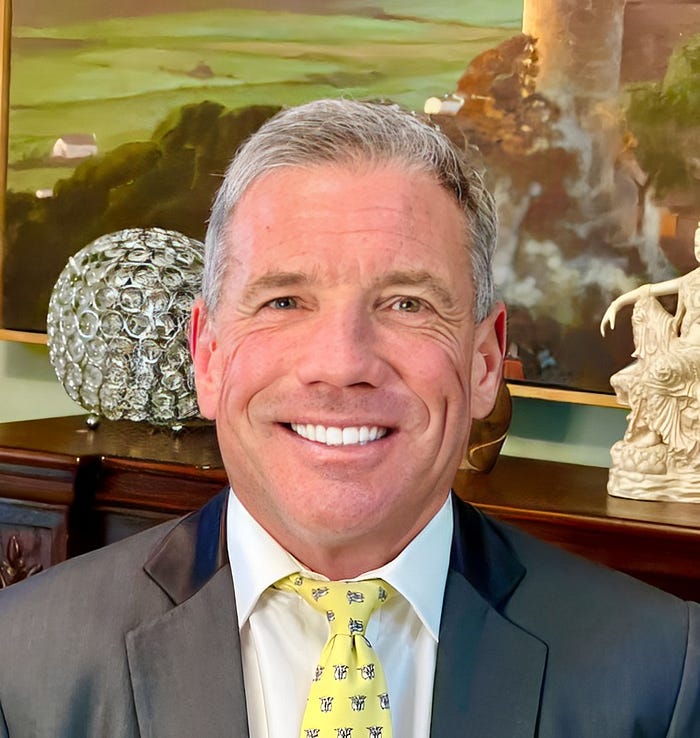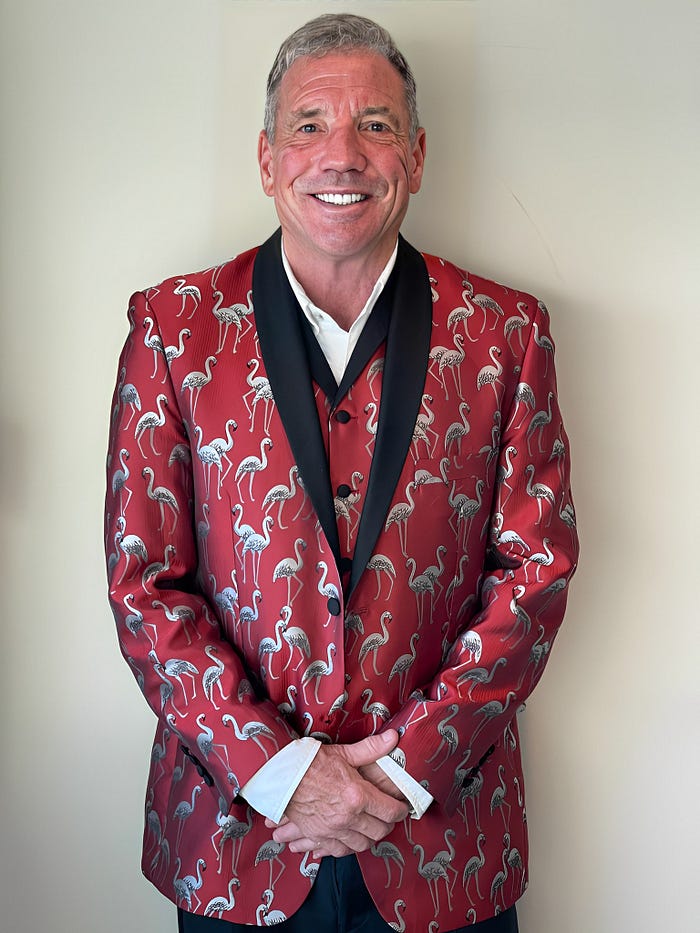An Interview With Eric Pines

Make up your mindset. Let me be honest. What you experience in law school and in your legal career has everything to do with those little gray cells between your ears.
Asa part of my series about “5 things I wish someone told me when I first became an attorney,” I had the pleasure of interviewing James Gray Robinson.
Gray Robinson, Esq. is a third-generation trial attorney who specialized in family law and civil litigation for 27 years in his native North Carolina. Burned out, he quit in 2004 and has spent the next 18 years doing extensive research and innovative training to help others facing burnout and personal crises to heal. He has taught wellness, transformation, and success strategies internationally to hundreds of private clients. In 2017, at the age of 64, using the tools and strategies he learned, Gray passed the Oregon bar exam and is again a licensed attorney focused on helping lawyers facing stress, anxiety, addiction, depression, exhaustion, and burnout. He is regularly published in the ABA Journal, Attorneys at Work, Family Lawyer Magazine, and other national publications. He speaks frequently at ABA, state, and local bar association functions. You can learn more about his work at www.LawyerLifeline.net and www.Elevateyourmindcoaching.com.
Thank you so much for joining us! Our readers would love to get to know you a bit more. What is the “backstory” that brought you to this particular career path in Law?
I am a third-generation trial lawyer. In 2004, after 27 years of practice, I had a nervous breakdown (burn out) from stress and anxiety even though I was highly successful and AV rated by my peers. Since that time, I have studied extensively the causes of burnout and the solutions to avoid it. I have taught around the world and helped hundreds of people heal trauma, stress, anxiety, illness, and emotional issues. I now train lawyers and other professionals on how to deal with anxiety, stress, and burnout. I am regularly published in national legal journals, including the ABA Journal on mental health and wellness issues. I have written published articles on this topic. I regularly speak at ABA seminars and local bar association CLE. I am a licensed attorney and certified master trainer and practitioner of ICF Coaching, NLP, TimeLine Therapy, Hypnotherapy, Meditation Coach, Reiki I, II, III and CMRP, Breathwork Coach.
Can you share the funniest or most interesting story that occurred to you in the course of your law career?
I was defending a man charged with indecent exposure. His neighbor claimed that he had exposed himself to her. She testified that she was looking out her kitchen window and watched him come out of his garage and expose himself. I asked her how far he was from her window, and she testified it was about 500 feet. I then asked her how she was able to see him if she was so far away. She testified that she was watching him through a pair of binoculars. The judge immediately threw out the case.
What are some of the most interesting or exciting projects you are working on now?
I help lawyers suffering from stress and anxiety, and I speak regularly at national and regional bar association meetings.
What are some of the most interesting cases you have been involved in? Without sharing anything confidential, can you share any stories?
I have represented high-profile individuals in divorces, bankruptcies, defamation and fraud claims. I can’t give any details because it would immediately give away their identity.
Which people in history inspire you the most? Why?
I admire anyone who has endured suffering to change the world without financial reward.
What advice would you give to a young person considering a career in law?
Make sure you are suited to handle a stressful and challenging career. You need to compare practicing law to front line military, first responders and emergency medical doctors from a mental and emotional standpoint.
If you had the ability to make three reforms in our judicial/legal system, which three would you start with? Why?
- I would remove domestic cases from judicial review and assign them to panels consisting of (1) legal expert, (2) mental health expert and (3) financial expert. Domestic cases should not be a battle ground, it should be a village effort.
- I would have more specialized judges assigned to decide cases they have expertise in. The old adage that “it doesn’t matter that the judge will never know the case as well as the lawyer, he will decide it anyway” is an unpleasant truth.
- We desperately need hundreds more immigration judges. The current immigration judiciary is totally overwhelmed.
How have you used your success to bring goodness to the world?
I have helped many people heal from trauma and saved countless relationships.
I know this is not an easy job. What drives you?
I don’t want anyone to have to go through what I experienced when I had to quit. It is preventable.

What are your “5 things I wish someone told me when I first started” and why? Please share a story or an example for each.
This is a copy of part of an article that was published by a national legal journal on the same subject.
1. Make up your mindset. Let me be honest. What you experience in law school and in your legal career has everything to do with those little gray cells between your ears.
Studying the law and then practicing the law can either be a positive endeavor or a dance with the devil. You must have a disposition that is positive with a healthy belief in what you are doing. Find your support group and use it often.
Law practice does not have to be competitive. It should be collaborative. It is not you against everyone else. The truth is that the law is a jealous mistress, but you can be the boss. The trap that many lawyers fall into is that family, fun and joy must be postponed, in order to establish your class rank and then your salary. That is why so many lawyers, including myself, burn out or quit. If there is any quality that separates lawyers who thrive practicing law and those that burn out, it is a sense of humor.
2. Manage your expectations. This is probably the most important aspect of law school and law practice. Most law students fall into one of three categories, and all three have the potential to make a lot of money and be successful. The first category are the over-achievers. They are top of the class, brilliant, and appear to have a successful future. The second category are students who do well, study hard, but for whatever reasons don’t make the top grades. The third category are students who don’t care about class rank and just want to graduate. Perhaps they work nights or have family responsibilities.
My experience is that it doesn’t matter which category you fall in; you can be a thriving, successful lawyer. The only test for law students is passing the bar exam.
You don’t get a grade on the bar exam; you only pass or not. You can even take it several times and be a successful lawyer. Your mindset (see above) determines your legal success, not class rank.
3. Don’t take it personally. You will not bat 1000 at whatever kind of practice you have. You will not win every trial or get every client. The practice of law is competitive and has ups and downs. You will be criticized or second guessed. You may even be your own worst critic. It is important to remember that you have chosen a challenging and difficult profession.
You have to focus on the wins, not the losses. Learn from when you don’t get what you want. Your track record is not a reflection of you as a person. Try to take meritorious cases, don’t take losers just to have something to do. Don’t “drink the Kool-Aid” that winning is the only indication of your talents. Be flexible, roll with the punches, and remember it is not how many times you get knocked down, it is how many times you get up.
4. Network, network, network. Networking is a muscle that must be exercised. The more people you know and connect with, the more successful your law practice experience will be. I got more meaningful advice from court clerks on procedure than spending hours in a library. Make friends and be a friend. You will be remembered long after the memory of the top student fades away. (Unless he/she is a friend, too.)
5. Seek balance. Life is complicated. We have a physical body, a mental body, an emotional body, and a spiritual body (soul). You don’t have to spend equal amounts of time on each one all the time, but you do have to feed and nourish them to be healthy. Neurological studies have shown us that these bodies are connected in ways we are just beginning to understand.
We are very blessed that some of the biggest names in Business, VC funding, Sports, and Entertainment read this column. Is there a person in the world, or in the US whom you would love to have a private breakfast or lunch with, and why? He or she might see this. 🙂
Chief Justice John Roberts of SCOTUS. I would like to discuss helping the mental and emotional health of judges.
This was very inspiring. Thank you so much for the time you spent with this. We wish you continued success and good health!
About the Interviewer: Eric L. Pines is a nationally recognized federal employment lawyer, mediator, and attorney business coach. He represents federal employees and acts as in-house counsel for over fifty thousand federal employees through his work as a federal employee labor union representative. A formal federal employee himself, Mr. Pines began his federal employment law career as in-house counsel for AFGE Local 1923 which is in Social Security Administration’s headquarters and is the largest federal union local in the world. He presently serves as AFGE 1923’s Chief Counsel as well as in-house counsel for all FEMA bargaining unit employees and numerous Department of Defense and Veteran Affairs unions.
While he and his firm specialize in representing federal employees from all federal agencies and in reference to virtually all federal employee matters, his firm has placed special attention on representing Veteran Affairs doctors and nurses hired under the authority of Title. He and his firm have a particular passion in representing disabled federal employees with their requests for medical and religious reasonable accommodations when those accommodations are warranted under the Rehabilitation Act of 1973 (ADA). He also represents them with their requests for Federal Employee Disability Retirement (OPM) when an accommodation would not be possible.
Mr. Pines has also served as a mediator for numerous federal agencies, including serving a year as the Library of Congress’ in-house EEO Mediator. He has also served as an expert witness in federal court for federal employee matters. He has also worked as an EEO technical writer drafting hundreds of Final Agency Decisions for the federal sector.
Mr. Pines’ firm is headquartered in Houston, Texas and has offices in Baltimore, Maryland and Atlanta, Georgia. His first passion is his wife and five children. He plays classical and rock guitar and enjoys playing ice hockey, running, and biking. Please visit his websites at www.pinesfederal.com and www.toughinjurylawyers.com. He can also be reached at eric@pinesfederal.com.
SEE ORIGINAL ARTICLE HERE: https://medium.com/authority-magazine/james-gray-robinson-5-things-i-wish-someone-told-me-when-i-first-became-an-attorney-30a36080f04a
